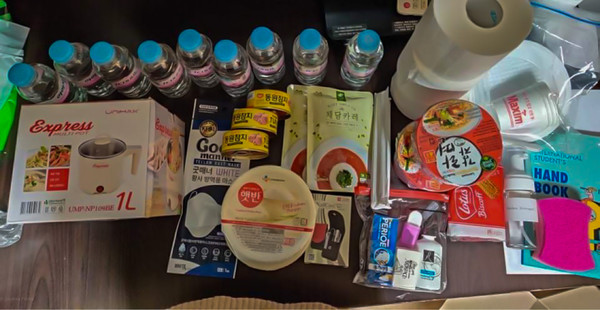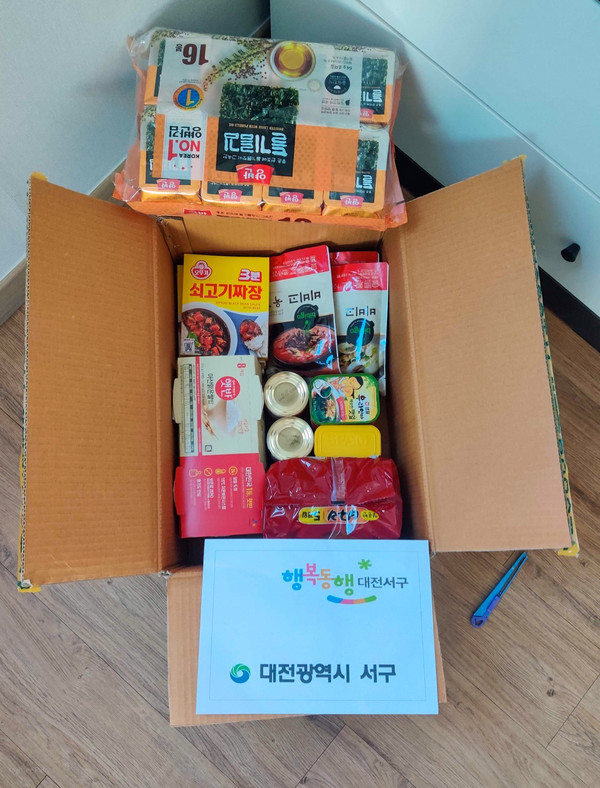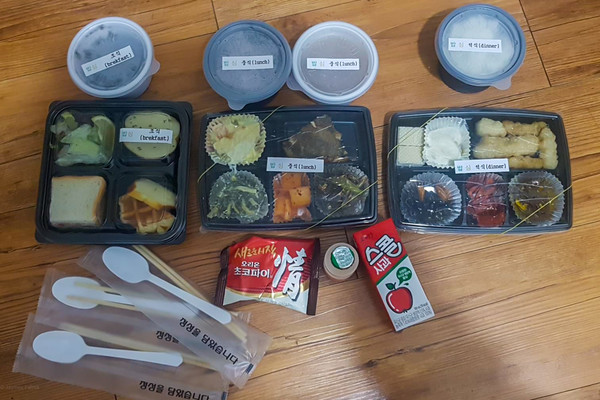Starting from April 1, 2020, all travelers entering South Korea have been required to complete a mandatory 14-day self-quarantine at their own residence or at government-approved quarantine facilities. As the COVID-19 pandemic continues with no clear end in sight, KAIST has allowed international students to come back to campus, provided that they quarantine at their own expense. The KAIST Herald interviewed international students who have undergone the quarantine procedure to find out more about the process and to set expectations for international students planning to come to Korea in the near future.
Where to quarantine
Most students either booked their quarantine at certified Airbnbs or at RoomKor, a private quarantine facility in Seoul recommended by ISSS. Most Airbnb stays cost around 300,000 KRW for 14 days, while RoomKor provides room and meals starting from around 80 USD per day. For RoomKor bookings, KAIST students can receive an additional 5% discount. KISA compiled a comprehensive list of quarantine facilities with contributions from international students who have already returned.
ISSS requires students to fill out an entry authorization form and receive approval from the KAIST COVID-19 Task Force (KAIST TF) prior to returning. It asks for the self-quarantine facility address and the contact of the Airbnb host, if applicable.
The self-quarantine period ends at 12 p.m. 14 days after arrival. KAIST students will then be guided by the KAIST TF on what to do after quarantine. Students are allowed to move into dormitories after the quarantine period.
Arrival procedures
Upon arrival at the airport, officials direct people to authorized waiting areas, where they ask for a contact number for further announcements and instructions. People without a Korean phone number must ask someone who can be contacted on their behalf, such as friends who can speak Korean or the ISSS staff. Reporting the address of the quarantine facility is also required, and everyone must download the “Self-Quarantine Safety Protection App”, created by the Ministry of the Interior and Safety, to log their temperature twice a day during the quarantine period.
Arrivals are then guided to arranged transportation based on the location of their quarantine facility. People staying in Seoul are given the choice of taking a bus or a taxi to their accomodation. According to Lance Khizner Gragasin, a freshman from the Philippines, the taxi to his RoomKor accommodation in Seoul cost 70,000 KRW. Those leaving Seoul are escorted to a bus that drops them off at the Gwangmyeong KTX Station, which costs about 10,000 KRW. Students quarantining in Daejeon then purchase their own KTX ticket, costing about 20,000 KRW, and are asked whether they will be picked up at the station. If not, they will be given a free bus ride to their quarantine address.
Within two days after arriving and before finishing the 14 days of self-isolation, it is required to undergo a PCR test for COVID-19 at the nearest health center. Taking a taxi is allowed as long as you take a picture of the license plate. The result of the COVID test is usually notified the next day. “I did not have to pay any medical expenses. The only thing I needed to pay for was [transportation]”, said Taufiq Murtadho, a fourth year undergraduate from the Department of Physics.
Daily necessities
ISSS sends care packages to students self-quarantining, which includes some toiletries, instant food, a multipot, a thermometer, and other necessities. The Daejeon Metropolitan Government also sends a package of food containing ramyeon, some canned goods like tuna and spam, and other instant food. For people quarantining at RoomKor, three meals are provided per day, along with two liters of water. Groceries can be ordered online from apps like Coupang, Emart, and Homeplus, and food can be delivered from apps such as Coupang Eats, Yogiyo, or Baedal Minjok.



What to prepare
Preparing the quarantine address in both Korean and English, contact details, and quarantine contract from the host will be helpful during the administrative process. Effective from January 8, all foreign nationals entering Korea as well as South Korean nationals arriving from the UK and South Africa are required to present a negative COVID-19 PCR test, taken within the last 72 hours, to airline personnel before departure. Preparing a thermometer, face masks, disposable gloves, and other hygiene products are recommended.
Advice to people about to undergo quarantine
A Korean phone number, bank account, and alien registration card (ARC) are needed to order groceries and delivery food. Freshmen without bank accounts and ARCs are recommended to ask friends or seniors for assistance in ordering necessities. Students returning without a phone number are advised to get a temporary phone number at the airport. Kiosks are available near the waiting area, with plans that include unlimited data and additional charging for voice calls. If you do not have a Korean phone number, it is recommended to download the KakaoTalk app on your phone to be contacted more easily. Returning students are also advised to follow the directions given by officials and to coordinate with ISSS. ISSS also provides useful Korean phrases for international students.
Thanks to Xinyue Ma, Taufiq Murtadho, Umar Taufiqulhakim, Daniil Melnichenko, Pamela Anna Joya, and Lance Khizner Gragasin for sharing their experiences and providing information for this article.

